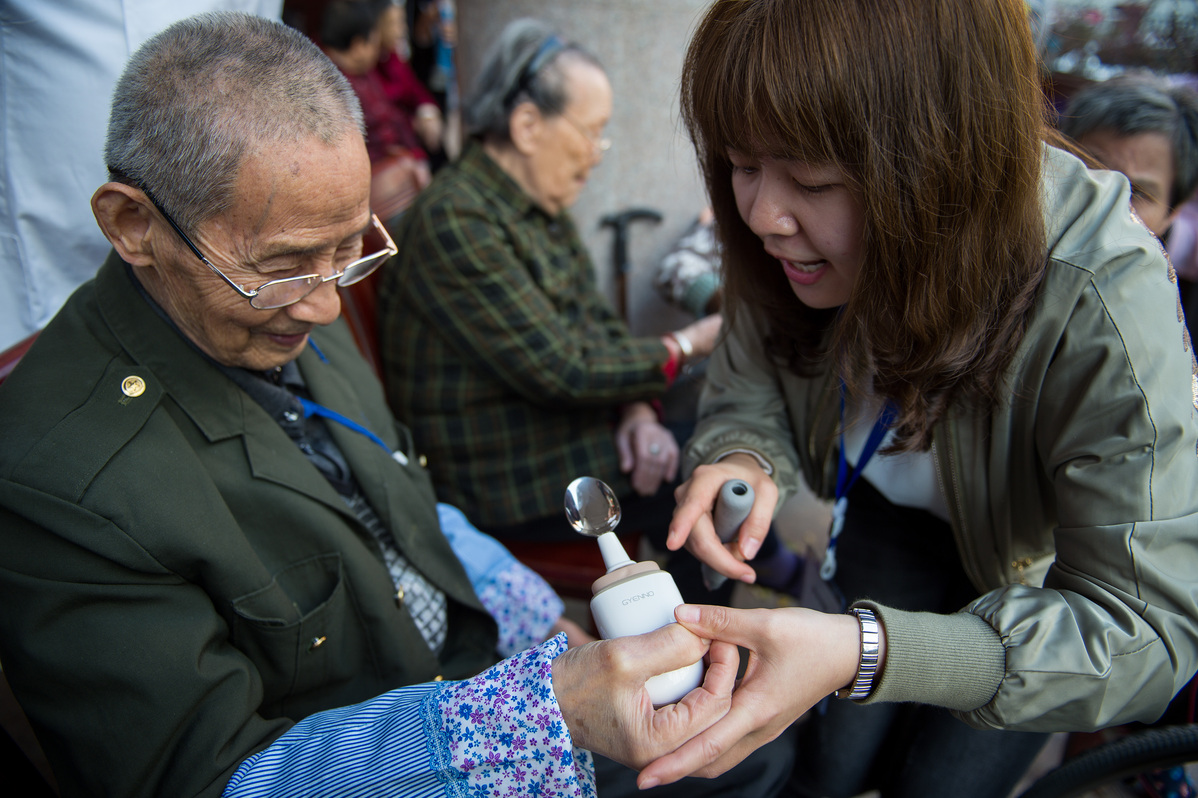Familial link for Parkinson's disease discovered


Abnormal sleeping behavior may offer scientists more clues for a better understanding of the condition. Nora Zheng reports from Hong Kong.
Lok Sau-yung dreamed she was on a road walking toward a large pit. She feared that she might fall through the loose boards covering the top, but a worker reassured her that it was OK, so she carried on, and fell straight into the pit.
In reality, she had fallen out of bed, injuring her mouth so badly that seven stitches were required.
The 82-year-old was diagnosed as having rapid eye movement sleep behavior disorder, known as RBD, since she was 66. People with the condition act out their dreams: They converse, shout, punch, flail and sometimes fall out of bed, which not only endangers them, but also their sleeping partner.
Lok's son Wong Li, 59, started showing similar symptoms nine years ago. His wife said he punched her while he was asleep, giving her a black eye. In the morning, Wong didn't remember a thing.
Though Wong has been told he is at a high risk of contracting full RBD and Parkinson's disease, he said the news has not made him anxious. He plans to retire this year and relieve the strain of hard work. In addition, he exercises regularly to improve his mood and sleep because he believes that doing something is better than doing nothing at all.
Wong's issues, similar to those experienced by his mother, may be genetic because first-degree relatives of RBD patients are at higher risk of contracting the condition. Not only that, a recent study reveals that the family trait places Wong at greater risk of Parkinson's disease than is normal among the population as a whole.
The study, the first in the world into RBD and families, was conducted by Wing Yun-kwok, a professor at the Chinese University of Hong Kong's Faculty of Medicine. He and his team worked in collaboration with Sichuan University, Hong Kong University's Department of Psychology and McGill University in Canada.
The scientists invited 102 RBD patients and 89 individuals without the affliction, and 791 first-degree relatives. The subjects included the parents, siblings and offspring of those taking part in the study.
The researchers conducted sleep studies using polysomnography - a multiparametric test - and supplementary examinations, including the assessment of motor functions, olfactory testing and color vision tests.
Their results suggest that first-degree relatives of RBD patients are three to six times more likely to develop neurological conditions, including Parkinson's disease, than first-degree relatives of the healthy control group members.
- France's intl food and beverage exhibition opens in Shanghai
- Museums are free between 17-19
- Hubei's tourism sector flourishes during May Day holiday
- Hebei's innovative energy storage station sets new standard for clean power in North China
- New Archaeopteryx fossil sheds light on bird evolution
- China urges Philippines to halt 'risky' acts near South China Sea island





































